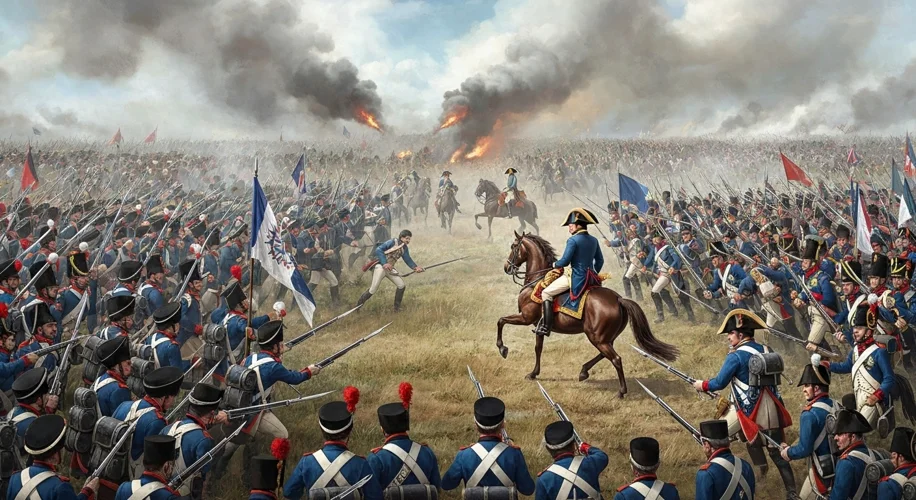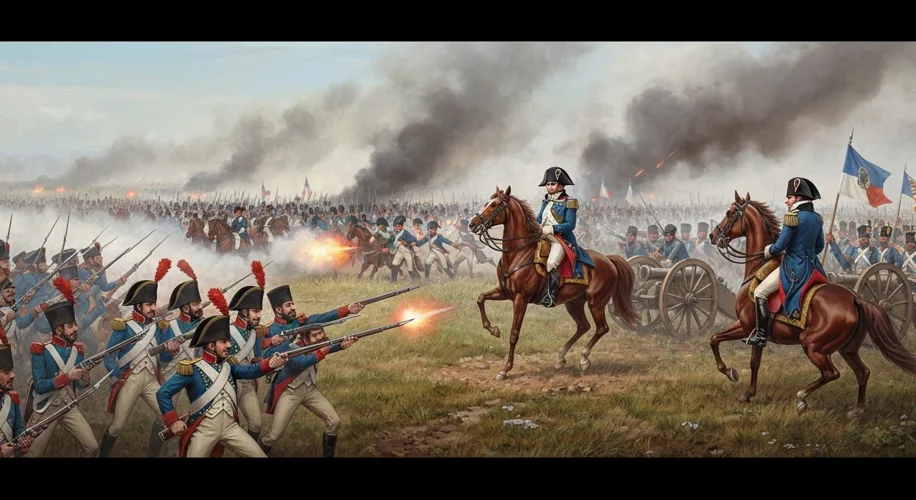The year is 1815. Europe, a continent still reeling from two decades of relentless warfare, finds itself at a precipice. The “Little Corporal,” Napoleon Bonaparte, a name that had sent shivers through royal courts and inspired awe on battlefields, had been decisively defeated. But his shadow, and the seismic shifts he had wrought upon the political landscape, remained.
The Napoleonic Wars, a sprawling series of conflicts that raged from 1799 to 1815, were far more than mere battles. They were a crucible in which the very foundations of European geopolitics were melted down and recast. These wars didn’t just redraw maps; they redrew ideologies, redrew national identities, and fundamentally altered the balance of power that had governed the continent for centuries.
Before Napoleon’s meteoric rise, Europe was a tapestry of ancient monarchies and empires, each vying for influence through intricate alliances and dynastic marriages. The Enlightenment had sown seeds of liberty and republicanism, but the established order, embodied by the aristocratic societies of the Ancien Régime, seemed immutable. Then came the French Revolution, a tempest that swept away the old world and unleashed a force like never before: Napoleon.
Napoleon was a product of this revolutionary fire. A brilliant military strategist and an ambitious political leader, he rose through the ranks of the French army to crown himself Emperor. His reign was characterized by a relentless drive for expansion, an unparalleled ability to mobilize France’s vast human resources, and a series of dazzling military victories. The “Grande Armée,” a formidable fighting force forged from the revolutionary spirit, swept across Europe, shattering old empires and installing new regimes. Battles like Austerlitz (1805), Jena-Auerstedt (1806), and Wagram (1809) became legendary, symbols of French dominance.

However, Napoleon’s ambition sowed the seeds of his own downfall. His relentless pursuit of continental domination, his imposition of the Continental System (a blockade aimed at crippling British trade), and his disastrous invasion of Russia in 1812, where the Grande Armée was decimated by the brutal winter and fierce resistance, marked the beginning of the end. A coalition of European powers – Great Britain, Austria, Prussia, Russia, and Sweden – united against him, culminating in his defeat at the Battle of Leipzig in 1813 and his final, ignominious defeat at the Battle of Waterloo in 1815.
The consequences of these wars were profound and far-reaching. The Holy Roman Empire, a medieval entity that had long outlived its usefulness, was dissolved. The map of Europe was redrawn multiple times, with new kingdoms created and old ones dismantled. The ideals of the French Revolution – liberty, equality, and fraternity – though often suppressed by Napoleon himself, had been unleashed. They resonated across the continent, inspiring nationalist movements and calls for reform that would continue to shape European history for decades to come.
The Congress of Vienna, convened in 1814-1815, attempted to restore the pre-revolutionary order and establish a lasting peace. Led by figures like Klemens von Metternich of Austria, the Congress sought to balance power, re-establish monarchies, and suppress liberal and nationalist aspirations. Yet, the genie of change could not be put back into the bottle.
The Napoleonic Wars fundamentally reshaped European geopolitics by:
- The Rise of Nationalism: Napoleon’s conquests, while often oppressive, inadvertently fanned the flames of national identity in the occupied territories. Peoples united against French rule, fostering a sense of shared destiny and a desire for self-determination.
- The Decline of Old Empires: The wars accelerated the decline of long-established empires like the Habsburgs and the Ottomans, creating power vacuums that would be filled by new forces.
- The Emergence of Britain as a Global Power: Britain’s naval supremacy and its role in financing the coalitions against Napoleon cemented its position as the world’s leading colonial and maritime power.
- The Spread of Legal and Administrative Reforms: The Napoleonic Code, a comprehensive legal system, was implemented in many of Napoleon’s conquered territories, influencing legal systems across Europe and beyond.
In retrospect, the Napoleonic era was a watershed moment. It was a period of immense upheaval, of breathtaking military genius, and of profound ideological struggle. While Napoleon himself ultimately failed to forge a lasting French empire, the forces he unleashed – nationalism, liberalism, and the very concept of total war – irrevocably altered the course of European history, leaving a legacy that continues to be felt to this day.

